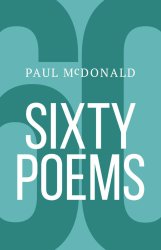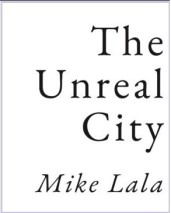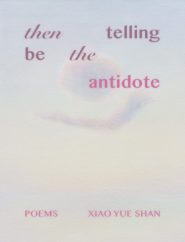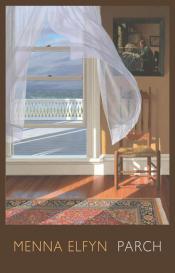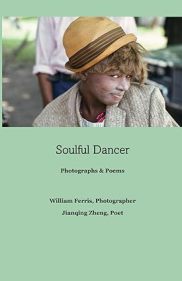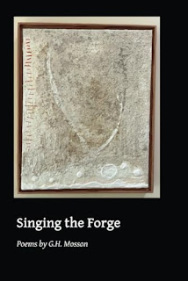
Paul McDonald, 60 Poems,
Greenwich Exchange, 2023.
ISBN: 978-1-910996-72-0. 74pp. £9.99.
The title of Paul McDonald’s fourth collection in its almost provocative baldness immediately evoked for me a slim volume by a poet of the last century, 18 Poems, the debut collection of Dylan Thomas. Unlike Thomas, however, who merely used the first line of each poem as token titles for the poems in 18 Poems, McDonald gives all his poems in 60 Poems descriptive titles, many of which are arresting. Indeed vivid language enlivens the body of the work to be found here. From the first poem in the collection, ‘Queen’, about an infestation of wasps, the reader is treated to a dazzling display with lines like ‘light fittings buzzed with the engine of wasps’ which reminded me of the energy to be found in the poetry of Peter Redgrove.
The most intriguing poem titles, however, are those in a suite of poems which focuses on a woman (which it is safe to assume is the poet’s mother) who is suffering with dementia. The opening poem, ‘Dementia Butterfly’, is immediately intriguing. It sets a tone which transmutes everyday language into a highly charged discourse that is poignant yet avoids sentimentality, as in the following lines:
Time will regress you
from hereon. Soon you’ll be a
child, then eternal
like grass. Change is part of life
you say. Ask a butterfly.
Similarly in ‘Yellow Clouds’, a distressing scene is rendered with delicacy and restraint and hits the reader with even more force as a result:
When your mother walks barefoot
to your house, you welcome her,
the February morning,
pine scented freeze that follows
like a phantom through the door.
There are many poems like this in the collection that resonate beyond the confines of mere observation or description to achieve the force of epiphany. The suite ends with ‘Sadness’, where loss and grief are palpably realised: “Sadness is best experienced in bedrooms: / outdoors there’s too much freedom…here where the scent of sadness stays: / you’ll dream and wake to it forever.”
McDonald excels at vignettes too, with the flair of a good novelist (it is no surprise to discover that he has three published novels to his credit) combined with a painter’s eye. ‘Woman observed during an intermission’ is one such poem, with images that function like brushstrokes: “Her dress looks new, like nightfall on her body.” There are several poems in this vein which have a similar imagistic force. McDonald also explicitly acknowledges famous artists in poems such as ‘Van Gogh at Arles’ and ‘Cezanne and the Gardener’, which do not simply sketch biographical tropes but offer a brilliance that replicates the work of the artists that prompted the poems.
While McDonald is given to occasional virtuosity, he exercises firm control while doing so. He thereby avoids any suggestion of mere filigree or ornamentation, writing vividly but always with intelligence to produce subtle and nuanced effects. Furthermore, and perhaps even more importantly, his use of language is harmonious and well-tempered. Examples of this are to be found throughout. The tonal qualities of ‘Bicycle Thieves’, for instance, are beautifully but subtly expressed:
But you are going nowhere as the sun
kaleidoscopes through spokes, casting
broken shadows on the weird world
we’ve made, affording little shade
for the people tired of walking.
Here the internal rhymes, alliteration and assonance are effective but kept in check, working for the poem rather than against it.
There is one device he is fond of deploying (which is only noticeable because he does not write in fixed forms) and that is closing a poem with a rhymed couplet. He does not use this technique exhaustively however and sometimes the rhyme is softened by being hidden or delayed, as in the following from ‘Dementia Morning’:
Sleep to wake again, sitting in the
wrong chair: seek your former self, starting
with your fingers in your hair.
Far from being addicted to displaying what a skilful writer he is, it is clear that an overriding consideration for him is to the integrity of the poem itself. This is evidenced in ‘Lucky Jim’ which employs prosaic language throughout, a register that appropriately fits the subject matter, describing a visit by the writer to a woman who has been recently widowed:
I went to Brenda’s house for dinner.
She’s clearing out the fridge which meant
a first course of fishcakes and yoghurt.
Lucky they’re compatible, she said.
Such a plain, commonplace style might easily tip into bathos but here it is endowed with a poignant edge. McDonald’s aesthetic instinct was proved spot on when this poem took first prize in the 2012 John Clare Poetry Competition.
I was not familiar with McDonald’s work prior to reading 60 Poems but on the basis of this collection alone, I feel confident to assert that he is an exceptional poet.
David Mark Williams
To order this book click here
David Mark Williams writes poetry and short fiction. He has two collections of poetry published: The Odd Sock Exchange (Cinnamon, 2015) and Papaya Fantasia (Hedgehog, 2018). For more information go to www.davidmarkwilliams.co.uk
Mike Lala, The Unreal City,
Tupelo Press, 2023.
ISBN: 978-1-946482-93-8. 102pp. $21.95.
In his essay, “The Painter of Modern Life,” Charles Baudelaire defined a flâneur as a gentleman stroller of the streets, one who observes and experiences modern-day urban life as he casually goes about his business. While the term “Unreal City” comes from T.S. Eliot’s famous poem, “The Waste Land,” it’s a phrase he borrowed from Baudelaire’s poem, “The Seven Old Men” (“Fourmillante cite, cité pleine de rêves”).
Mike Lala is a true flâneur. In the six poems that make up The Unreal City, including the monumental two-part “Work: A Poem,” from which the book's title comes, Lala leads us around various cities, mainly New York, observing, commenting, venting, despairing.
“Elizabeth Street” takes the reader from Varick Street in Lower Manhattan at 5:00, after work, to SobaKoh restaurant (“my / salty / savior”) on East Fifth Street to meet friends (“my baby and Bob Currie”). From a right on Spring Street (“Past nouveau riche on vacay”) to Sixth Street and on past the multifarious shrines to getting-and-spending and ultimately a right on Bleecker Street (“Where a shaded gaze my lasso lassos lasses’ eyes from thrice above my pay grade”), the flâneur tour guide guides us through the sights, sounds and memories that assault his senses.
Similarly, “Dandy Aisle” begins as a super-detailed account of a business lunch (yummy menu) before revving up to Lala’s overriding concerns about late-stage capitalism and the violent world – @dronestream reports of innocents killed as collateral damage in the ongoing global missile- and drone-strikes – Yemen, Somalia, Iraq, Afghanistan, Pakistan, etc. – “death / torture / interrogation” – the exploitation of labor and general rape of the planet.
The anxiety and disgust over these conditions reach their apotheosis in the poem “Work: A Poem,” which takes up about two-thirds of the book, but before that, Lala takes us on a stroll through “1982,” “a painting I’d like to paint, had I been a painter.” He writes: “The earth is dying. It’s 1982. Atmospheric carbon hangs like a threat….” ExxonMobil is there in the painting (along with Hillary, Thatcher, the Gipper and Ali Khamenei), A-10 WARTHOGS flying runs, “dark green, blending / almost perfectly into mountains’ sfumato, / aided by jet wash and their gun-smoke’s gray blur” in the upper-right background of the artist’s landscape.
But principally, in 1982, we’re taken to Mentmore, a 19th century English country estate (owned by Maharishi - “You made a fool of everyone” - Mahesh Yogi’s Transcendental Meditation Foundation) where Roxy Music is taping a video of the song “Avalon” with Sophie Ward accompanying Brian Ferry. The painting, then, has become a moving picture, but it’s going nowhere, “refuses to move forward,” for indeed, as Brian Ferry sings, “Now the party’s over.” Nothing here to see but collapse and destruction. Not 1984 but 1982! Ahead of deadline but way over budget.
Like Eliot’s “The Waste Land,” “Work: A Poem” comes with scads of footnotes, references to other literary works. Both cite Dante, but whereas “The Waste Land” was mainly inspired by the Grail Legend, Lala gives that distinction to Virgil’s Georgics and Hope Mirrlees’ Paris. (The Unreal City concludes with Viva Voce: A Note, a little stage play involving two characters named I and M, which cleverly serves as a sort of “Acknowledgements” page.) Mirrlees’ poem has been called “Modernism’s lost masterpiece,” and is itself another stroll through a city in the flâneuse style.
Eliot cites Baudelaire in his footnotes, and Lala cites Eliot – “The Love Song of J. Alfred Prufrock” as well as “The Waste Land.” Prufrock was a kind of flâneur himself, after all (“Let us go then, you and I … through certain half-deserted streets…”).
The “Unreal City” that Lala takes us through, though, while centered in New York, is more abstract, a metaphor for America and the World, “civilization,” in which our lives have become meaningless because we are alienated from our work – a Marxist principle. We find ourselves “staring down dozens of monitors / made by forced labor and shipped over continents / questioning every decision and everyone else’s intelligence.” Lala goes on
“Do they just…live?” sans the question, “How long
must I use the tools from their labor, my labor,
under those who steer the reigns of production
but don’t even own them to make fat bucks for those who do?”
Lala expresses his urgency: “Too-real city, time is short.” To sum up: “Property, capital, development, / industry broke the whole planet in 2.5 centuries.”
More explicitly, an indictment of the one-percent as well as the “massive surveillance state / to quash dissent and to scatter free discourse,” Lala describes
The labor of HUMANS & MACHINEs
well-tested in turning the SKIN of the earth
into a sponge leaching poison, a chemical prison
in which we all labor to our bodies’ detriment
as the clock spins on toward and for profit.
The poem’s epigraph, we also learn in Viva Voce, comes from Stanley Lombardo’s translation of Homer’s Iliad: “You die whether you slack off or work,” Achilles says to the Achaeans who have come to persuade him to fight against the Trojans, who are threatening to overwhelm them. Obviously, work and the personal value of work form the crucial overriding theme of the poem and of The Unreal City generally. Structurally and linguistically, Lala’s collection is one of a kind and should be taken seriously, both for its art and for its message.
To order this book click here
Charles Rammelkamp is Prose Editor for BrickHouse Books in Baltimore, where he lives, and edits The Potomac, an online literary journal. http://thepotomacjournal.com. His photographs, poetry and fiction have appeared in many literary journals. His latest book is a collection of poems called Mata Hari: Eye of the Day (Apprentice House, Loyola University), and another poetry collection, American Zeitgeist, is forthcoming from Apprentice House.
Xiao Yue Shan, then telling be the antidote,
Tupelo Press, 2023.
ISBN: 978-1-946482-92-1. 92pp. $21.95.
Telling is the antidote to what? Silence? Silence comes in many forms, from repression/censorship to mystical introspection to pure wordless longing. In the poem, “the nation of aphasia,” Xiao Yue Shan writes:
imagine your life is this thing
that is trapped on the tip of your tongue,
the word that is almost realized,
but you can’t quite think of.
Aphasia is a condition in which a
person can no longer formulate words, as a result of an aneurysm or a stroke or some other brain damage. Here it is metaphorical rather than neurological, and that nation? Is she talking about China?
Language is our way of understanding ourselves and our situation, our world, our culture.
Shan’s poems are set all over the world, from Tokyo to
Montreal, from Vietnam to an island in the Aegean, and all over her native China, from Beijing to Hong Kong, Harbin to Shanghai.
Very much concerned with place, with cartography (the poet has said she wishes to create a “cartography of language” through the places she has traveled and lived),
the poems sometimes focus very specifically in a street, by a river, or even in a kitchen. The poem, “kitchen” (“the kitchen / breathes on its own, as one who knows / knows”),
concludes:
it is as her grandmother has taught her mother,
how salt teaches the falls,
and how her mother has taught her,
how iron teaches the oil,
and how she has taught
me.
Family is important to the poet. In “and hong kong in 2001 was always this shade of light blue,” “exile hong kong,” “exodus hong kong,” “inheritance,” and others she
writes about her family’s hardships and their closeness. In “the right to work” (“without work our hands calcified around the shape / of patience”) she tells us “papa took blocks
of shivering white tofu from door to door on a bicycle.
mama tucked shelves of lettuce into plastic mouths.
that – is what laid a brick stepping path down middling
through the pacific. to be what one does. to do what one
can. at the eve of the passing millennium, mama was still
in her uniform. white rimmed yellow tired.
In “she says to start with cold water,” again writing about her mother, the poet illuminates the bond:
how to locate need
amidst all else
she used to say
if you’re hungry when you think of me
then I’ve been a good mother
Silence can also result from censorship. In “in Beijing the young writers ask me why people always want to talk about censorship” she writes:
do they think we have nothing to say
except to mourn, why do you ask me to explain
the reasons I write despite—what do you expect
me to say?
In the same poem she writes, “if quiet is such a sin where else would / we go to think.” The poem “speak” is also set in Beijing and alludes to the 1989 Tiananmen Square massacre. “hu yaobang had died. The city was a fever.” A day after Hu Yaobang’s death in April, 1989, a small demonstration that commemorated him blossomed into a protest of over 100,000 – and the death of an estimated 2,700 weeks later.
The poem is followed by the short “speak again”:
we didn’t know our names
until we heard it in their mouths
we didn’t know what we loved
until we were summoned to guard it
Clearly, politics are important to Xiao Yue Shan, but so too are more personal concerns. Desire is a strong theme throughout, and telling may be the antidote here as well, the voice that gives shape to longing. As she writes in “love poem in the way of a late game of scrabble,”
how easily language comes to us, then how
difficult
to sculpt this substance into the broad positions of living.
The poet addresses her unnamed
love, from whom she is separated, throughout the collection. In “the swift light against your face beautiful” she writes of “the wanting to love one another for a long time,” addressing “you,” and
again in “modals of lost opportunity” she ends the poem with the declaration, “nothing arrests time / as love does.” The poem, “explain to me fate as if I were a child” is likewise a love poem, as
she implores from her lover an explanation for “how did we come to be with / one another.”
Further, in “the dictionary of desire,” she alludes to
Aristophanes’ romantic myth of the two separated male and female halves searching for each other, for completion, as related in Plato’s Symposium. In the charmingly titled “the man I
love ran off with everything except my poems” she writes of “the immortality desire inflicts.”
Xiao Yue Shan concludes “love poem in the way of a late game of scrabble”: “the shape of love is a line,
that which everything hangs upon and nothing rests,
but the shape of the whole world faces us in squares.
the branching architecture of our own private definitions
within which speaking and silence are
holding each other.
The themes of silence and telling, love and desire, necessarily entail meditations on dreaming
and waking, death, eternity and time, and nowhere is this more in focus than in the charming poem “the emperor and I dream of immortality,” in which she tells the story of the Qin emperor who built
the Great Wall of China, pursuing “a cure for death.”
In the final poem, “details escape,” the poet alludes to commiserating “with the animal we named silence.” But the penultimate poem, “what language we have is used to tell the future,” may ultimately explain why telling is the antidote. It ends:
for the only thing plenty in the world are stories
and the time it has taken to tell them
To order this book click here
Charles Rammelkamp is Prose Editor for BrickHouse Books in Baltimore, where he lives, and edits The Potomac, an online literary journal. http://thepotomacjournal.com. His photographs, poetry and fiction have appeared in many literary journals. His latest book is a collection of poems called Mata Hari: Eye of the Day (Apprentice House, Loyola University), and another poetry collection, American Zeitgeist, is forthcoming from Apprentice House.
